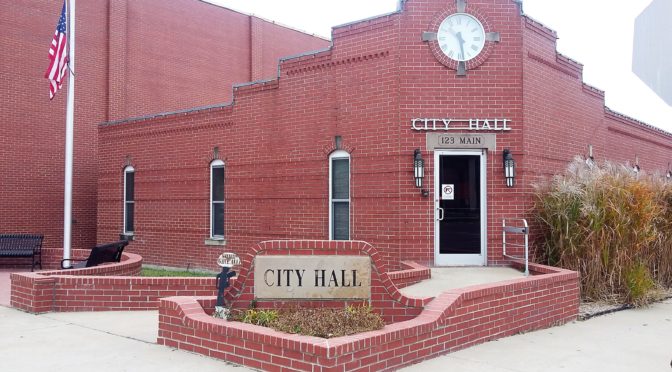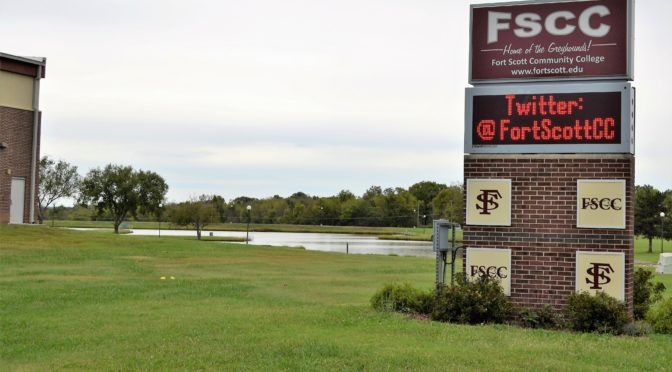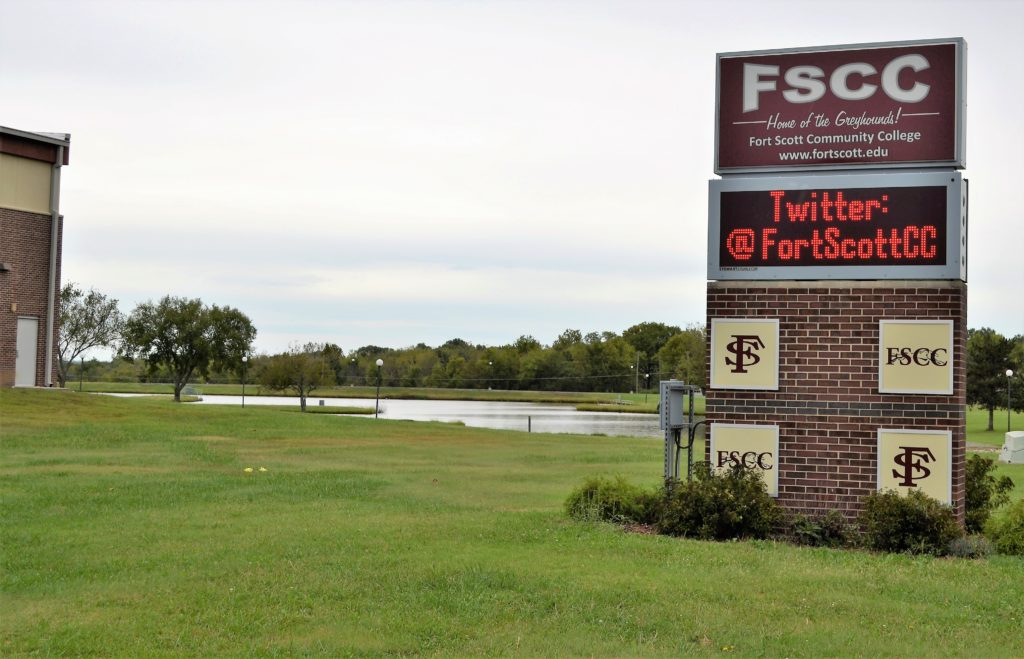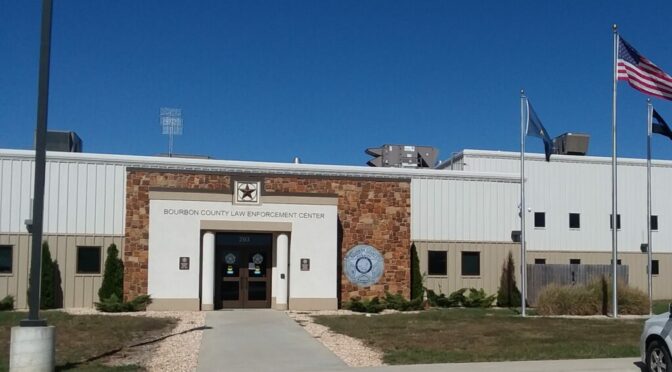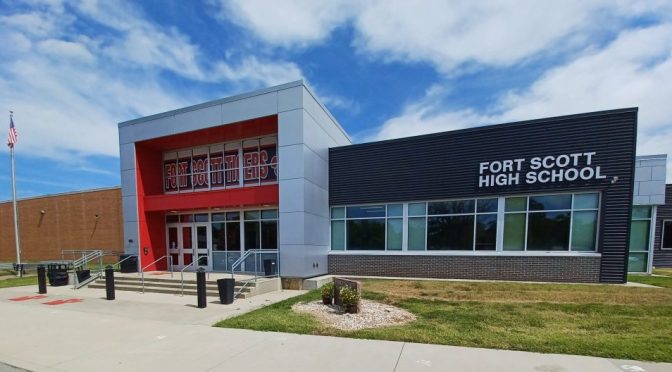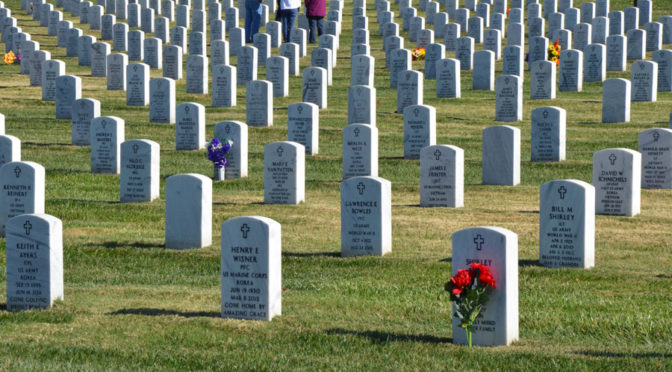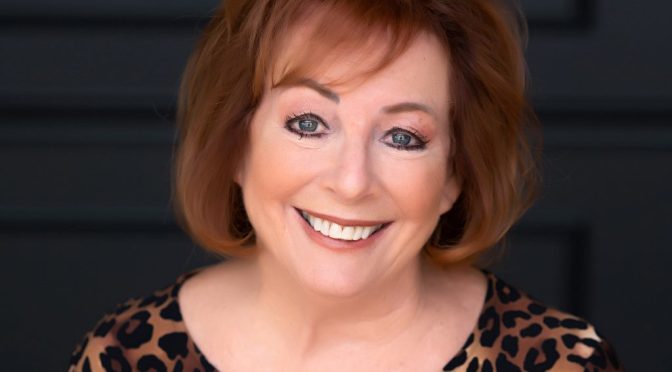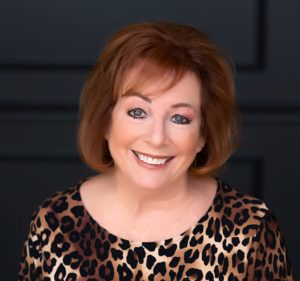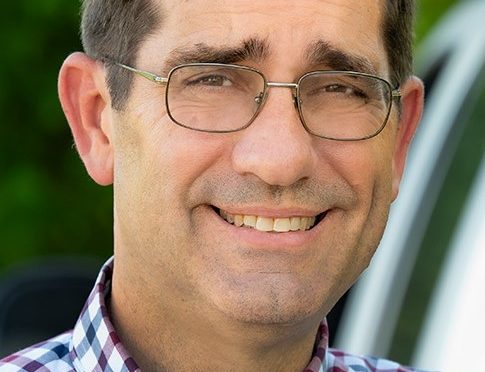CITY OF FORT SCOTT CITY COMMISSION MEETING
Minutes of January 20, 2026 Regular
Meeting
A meeting of the Fort Scott City Commission was held in the City Commission Meeting Room at City Hall,
123 S. Main Street, Fort Scott, Kansas. The meeting was streamed live on YouTube.
The meeting was called to order at 6:00PM. Roll call was taken. Commissioners Matthew Wells, Tracy
Dancer, Tim Van Hoecke, Julie Buchta and Mayor Kathryn Salsbury were present.
In Attendance – Brad Matkin/City Manager, Bob Farmer/City Attorney, Lisa Lewis/City Clerk, Lisa
Dillon/Housing & Neighborhood Revitalization Coordinator, Jason Dickman/Earles Engineering &
Inspections LLC, Ben Hart/BakerTilly, Dave Bruner/FSFD Chief, Lindsay Madison/Chamber of
Commerce, Amanda Lancaster/DBB, Inc., and Gregg Motley/4th District Bourbon County Commissioner.
SALSBURY led the Pledge of Allegiance and BUCHTA said a prayer asking God for guidance for the City,
the Citizens, our Government and City officials.
Approval of Agenda
MOTION: DANCER moved to approve the agenda as presented. WELLS seconded.
MOTION CARRIED 5-0.
Consent Agenda – Amendment with addition of Item D
A. Approval of Appropriation Ordinance 1400-A – Expense Approval Report –
Payment Dates of January 1, 2026 – January 13, 2026 – $440,300.54
B. Approval of 2026 Cereal Malt Beverage (CMB) License For Consumption on the
Premises: Fifth Wheel Tavern – 206 N. Humbolt St., Fort Scott, KS 66701
C. Approval of 2026 Occupation License – Precious Metals Dealer – Hulberts Jewelry
LLC/Bartelsmeyer Jewelry – 22 N. Main St., Fort Scott, KS 66701
D. Approval of 2026 Occupation License – Precious Metals Dealer – Fort Scott Gun &
Pawn – 1402 E. Wall St., Fort Scott, KS 66701
E. Request to Pay – Earles Engineering & Inspection LLC – Invoice 18373 – EEI Project
No. 25-12 East National Phase I – Design – 60% Complete – $15,525.00
F. Approval of Minutes: Regular Meeting of January 6, 2026
G. December Financials
MOTION: VAN HOECKE moved to approve the amended Consent Agenda. SALSBURY
seconded. SALSBURY, BUCHTA, VAN HOECKE and DANCER voted yes. WELLS voted
no.
MOTION CARRIED 4-1.
Public Comment – No public comment.
Appearances –
Amanda Lancaster – 2024 Audit and Consideration to Approve Invoice 176143 – Certified Audit
of Records and Preparation of Audit Report for the Year Ended December 21, 2024 – $20,200.00
Minutes of January 20, 2026 Fort Scott City Commission Regular
Meeting
2
LANCASTER was delayed.
MOTION: DANCER moved to push item (7) down until Ms. Lancaster can make an
appearance before the Commission. SALSBURY seconded.
MOTION CARRIED 5-0.
Unfinished Business
Consideration of RESOLUTION NO. 8-2026 A RESOLUTION OF THE CITY COMMISSION OF
THE CITY OF FORT SCOTT, KANSAS, ENDORSING PARTICIPATION IN THE KANSAS MAIN
STREET PROGRAM AND DESIGNATING THE LOCAL MAIN STREET ORGANIZATION –
Lindsay Madison
MOTION: WELLS motioned to move forward with the City’s version of the resolution, No. 8-
2026 with the inclusion of the City’s historic preservation committee as a signature on the
form. DANCER seconded.
MOTION CARRIED 5-0.
Consideration of RESOLUTION NO. 5-2026 A RESOLUTION FOR EXEMPTION FROM
GENERALLY ACCEPTED ACCOUNTING PRACTICES (GAAP) UNDER K.S.A. 1120A – Ben
Hart
Discussion was had about the differences between GAAP and Regulatory Cash Basis (KMAAG)
Audits and accounting procedures, fixed asset inventory and depreciation schedule. Greg Motley
contributed to the discussion.
VAN HOECKE requested a Point of Order and that Amanda Lancaster be allowed to make her
appearance before a vote is taken on the matter.
LANCASTER presented her results from the 2024 audit for the City of Fort Scott.
MOTION: VAN HOECKE moved to pay the invoice for DBB for $20,200.00 for our audit
report from year ended December 31, 2024. DANCER seconded.
MOTION CARRIED 5-0.
Further discussion was had regarding the possibility of doing a GAAP audit.
SALSBURY called the question.
MOTION: VAN HOECKE moved to approve Resolution No. 5-2026 A RESOLUTION FOR
EXEMPTION FROM GENERALLY ACCEPTED ACCOUNTING PRACTICES OR GAAP
UNDER K.S.A. 1120A. SALSBURY seconded. DANCER, SALSBURY, BUCHTA, and
VAN HOECKE voted yes. WELLS voted no.
MOTION CARRIED 4-1.
Minutes of January 20, 2026 Fort Scott City Commission Regular
Meeting
3
ACTION: HART will prepare a proposal for providing a depreciation schedule and the other
things that would meet the needs of the concerns expressed.
Consideration setting a date for a Budget Workshop with BakerTilly
Work Session set for April 21, 2026, at 5:00PM at City Hall before the Regular Commission
Meeting.
Consideration of RESOLUTION NO. 6-2026 RESOLUTION DIRECTING THE REPAIR OR
REMOVAL OF AN ALLEGED UNSAFE AND DANGEROUS STRUCTURE AT 1403 E. OAK –
Tabled November 18, 2025, for (30) days – Previously presented as Resolution No. 37-2025
KRUGER reported that the owner is currently working on the house, but may have stopped for
the winter. The house is still open, but the foundation (footing and a concrete retaining wall) has
been laid. Work has been done, but it is still in a state of disrepair. He has faith that it will
eventually be completed.
MOTION: WELLS moved to table this again until such a time as Officer Kruger has an
opportunity to bring more information and leave it up to his discretion. DANCER seconded.
MOTION PASSED 5-0.
ACTION: KRUGER will reach out to the owner about closing up the structure and report back to
the Commission.
Status Reports on Pending Demolition Proceedings
1626 E. Pine – KRUGER stated the owner has completely cleaned up the property, painted the
house and are doing everything that he has asked them to do so far. He believes the progress
justifies removing the placard from the house.
1815 E. Oak – KRUGER stated that it was requested by a person of interest at the public
hearing, that he be given time to get the house in probate. However, he has been in and out of
jail since the time was granted. This person does not have any legal authority for the house but
had agreed to board up windows and doors but nothing has transpired. The neighbor expressed
interest in purchasing the property when it goes to the Land Bank. The owner is in arrears on
taxes. KRUGER requested that the Commission reconsider the hold they put on the house and
that it be brought back up for demolition.
MOTION: VAN HOECKE motioned to move forward with resolving the unsafe home that
was up for repair or removal at 1815 E. Oak. DANCER seconded.
MOTION CARRIED 5-0.
New Business
Action Items:
Consideration of RESOLUTION NO. 7-2026 RESOLUTION AND NOTICE OF HEARING WITH
REFERENCE TO ALLEGED UNSAFE AND DANGEROUS STRUCTURE(S) AT 406 S.
HORTON, FORT SCOTT, KS 66701
Minutes of January 20, 2026 Fort Scott City Commission Regular
Meeting
4
FARMER left the meeting 6:58PM
KRUGER reported that no taxes have been paid since 2021. He has been trying for over (1) year
to get the owner who lives in California to do maintenance on this house. It has been vacant and
currently the roof has started to cave in on the house and it needs to come down. He gave further
description of the condition of the house.
MOTION: VAN HOECKE moved to approve Resolution No. 7-2026 A RESOLUTION AND
NOTICE OF HEARING WITH REFERENCE TO ALLEGED UNSAFE AND DANGEROUS
STRUCTURE AT 406 S. HORTON. SALSBURY seconded.
MOTION CARRIED 5-0.
Consideration to purchase Water Truck
MATKIN requested the purchase of a water truck for asphalting. It is on the CIP. He presented
the comparables and recommended the model from Niece Products – 2022 demo model, 17,200
miles, $65,850.00 plus $1,000.00 credit toward a trade in for a piece of iron in the back of the
barn. A warranty is included.
FARMER returned to the meeting 7:01PM
MOTION: BUCHTA moved to approve the purchase of the water truck from Niece
Products with a thank you to Al Niece. VAN HOECKE seconded.
MOTION CARRIED 5-0.
Discussion to adopt International Building Code (IBC) 2018 – L. Dillon
DILLON requested that the City upgrade from 2012 to 2018 to increase their chances for grant
awards. Discussion was had regarding the differences between the (2) codes. The fire code
would be the biggest impact but the advantages or increasing our ISO has benefits such as
homeowners receiving better insurance rates. BRUNER explained the ISO rating. The next
evaluation for ISO will be in 2027. By upgrading the code, the hope is to bring the City’s ISO
down from the current (3). Grandfathering under 2018 applies if renovation is under 50%.
FARMER added that it is important to remain current. BRUNER explained that the state fire
marshal is headed toward adopting IBC 2024 in the near future, but legislation will take longer.
Reports and Comments
City Manager:
– GO Bond being discussed with GilmoreBell
– IT will be at the next meeting for an update
– Moody Building – for sale, still monitoring
– 118 E. Wall – for sale, no updates, time to consider moving forward
– February meetings – discuss Contractor Licenses and City Lake Properties.
City Engineer:
– E. National update – working on preliminary plans
– Wall Street traffic control plan in works
– Consider sludge removal this year
Minutes of January 20, 2026 Fort Scott City Commission Regular
Meeting
5
– Water/Sewer Rate analysis needed before budget season
– Pre-construction meeting for Davis Lift Station project – start date February 16, 2026
Commissioner Wells:
– KDOT agreement for HWY54
– Fitness park timetable
– County moratorium for industrial and commercial business status
–
Commissioner Van Hoecke:
– City Clerk to put December 2, 2025 minutes on website
– 118 E. Wall – ready to move forward for resolution
– Cold weather awareness
Commissioner Dancer:
– Comments on accounting and demands for GAAP audit
– 911 outage question
– Hay bale obstacle course
Commissioner Buchta:
– Timken and Valu buildings update – appreciate City’s persistence
– Comments on GAAP audit
Commissioner Salsbury:
– Working on Ordinance 3793 – put on next agenda
– Cold weather awareness
Adjourn
MOTION: VAN HOECKE moved to adjourn the meeting at 7:33PM. DANCER seconded.
JANUARY 20, 2026, MEETING ADJOURNED AT 7:33PM.
Submitted by Lisa A. Lewis/City Clerk
